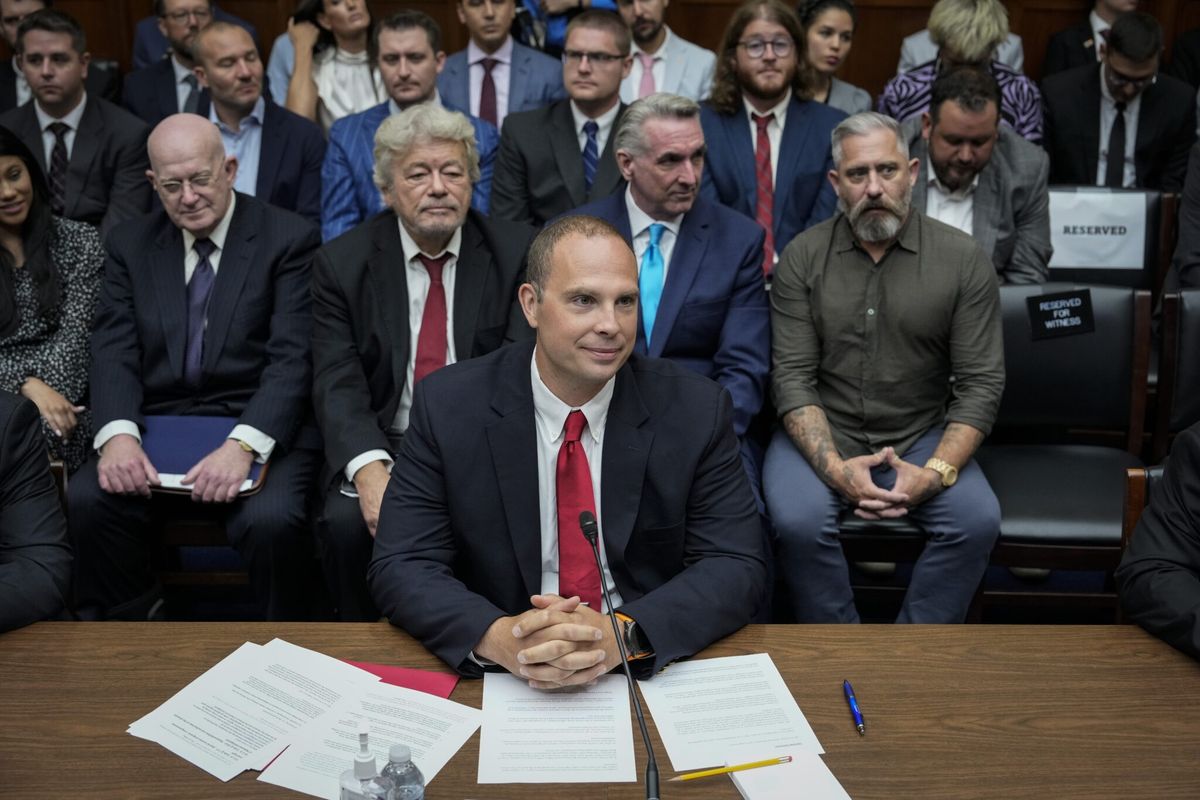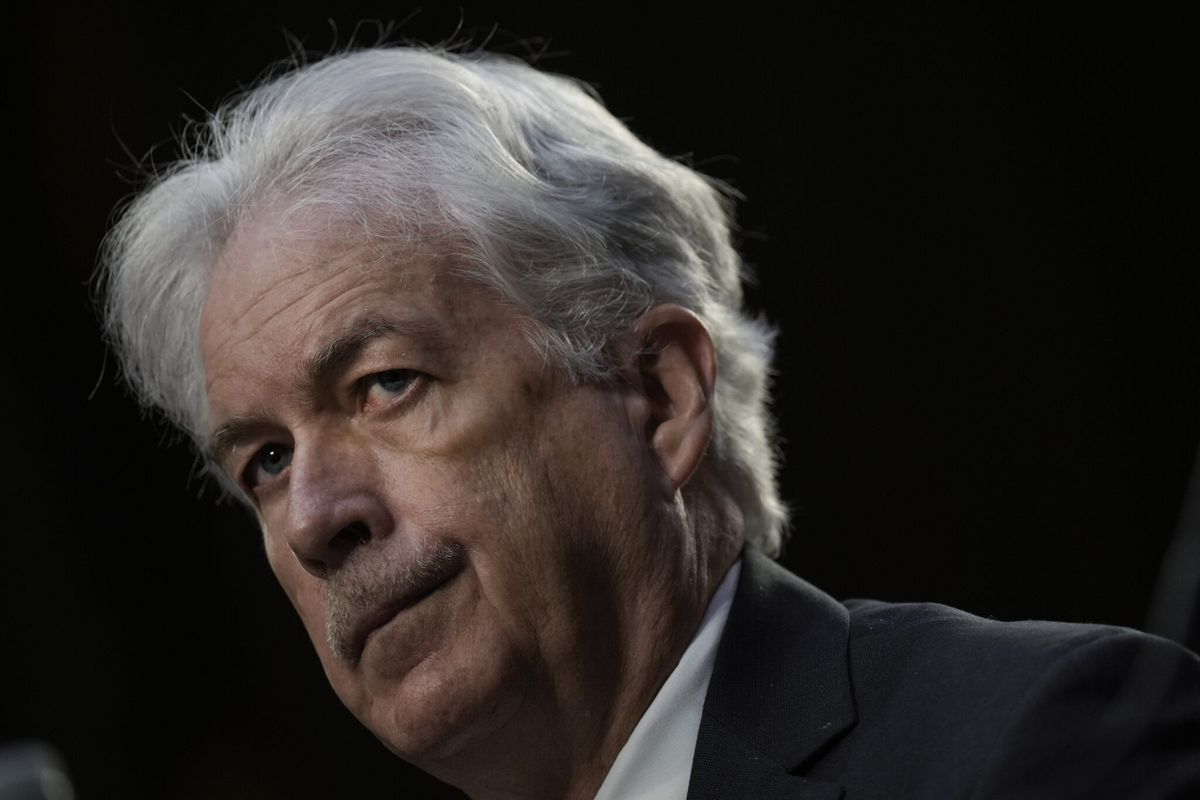CIPHER BRIEF REPORTING – Less than a month ago, with global attention fixed on the Ukrainian offensive, U.S. Admiral James Stavridis (ret.) sought to open the security aperture a bit more by pointing to the Iranian Revolutionary Guard and its seizure of a pair of huge oil tankers near the Strait of Hormuz.
Billed as the world’s most important energy chokepoint, transiting one-third of total seaborne oil exports and a quarter of its liquefied natural gas, Stavridis said that to protect shipping in the strait, the U.S may be drawn back into a role it assumed during anti-shipping campaigns of the 1980s, known as the “Tanker War." Back then, amidst ongoing conflict between Iraq and Iran, American ships escorted oil tankers through the Persian Gulf – a positioning that resulted in a one-day battle between Washington and Tehran.
“We could be on such a collision course again,” Stavridis wrote in a Bloomberg article last month. “If Iran continues to seize commercial vessels with impunity and zero justification, the international community will have to respond.”
“While the seizure of just two ships may not seem like a crisis,” he added, “it may be the beginning of a cycle in which the US Navy is drawn, yet again, into a risky mission to protect commercial shipping in the Gulf from Iranian aggression.”
This week, Stavridis' words seemed almost prescient, with the U.S. Navy again signaling its involvement in the region. In a statement on Wednesday, the Navy said it had intervened against an Iranian naval vessel as the ship approached a Marshall Islands-flagged oil tanker in international waters in the Gulf of Oman.
“The Iranian vessel departed the scene when U.S. Navy guided-missile destroyer USS McFaul (DDG 74) arrived on station,” the statement said. “Additionally, the U.S. Navy deployed surveillance assets, including MQ-9 Reaper and P-8 Poseidon maritime patrol aircraft.”
Looking for a way to get ahead of the week in cyber and tech? Sign up for the Cyber Initiatives Group Sunday newsletter to quickly get up to speed on the biggest cyber and tech headlines and be ready for the week ahead. Sign up today.
And yet three hours later, the U.S. Navy reported that it had received a separate "distress call from Bahamian-flagged oil tanker Richmond Voyager,” located some 20 miles off the coast of Muscat, Oman, which was “transiting international waters toward the Arabian Sea.”
“Another Iranian naval vessel had closed within one mile of Richmond Voyager while hailing the commercial tanker to stop,” the statement added. The USS McFaul then redirected course at “maximum speed," in a bid to intercept the vessel, but not before shots were fired. “Prior to McFaul’s arrival on scene, Iranian personnel fired multiple, long bursts from both small arms and crew-served weapons,” with “several rounds” hitting the ship’s hull near crew living spaces. No casualties or significant damage, however, were reported, while the Iranian naval vessel reportedly departed the scene.
“[The U.S. and Iran] have played this cat-and-mouse game for a long time,” explained Barbara Slavin, distinguished fellow at the Stimson Center and former founder of the Future of Iran Initiative at the Atlantic Council, who noted that Iranian leadership tends to use such tactics when frustrated by sanctions and other global events that work against its interests.
“When Iran is feeling neglected and they feel they haven’t been given attention,” Slavin added, “they jerk our chain.”
Heightened recent tensions between the two nations had been compounded last month with the Iranian seizure of the two oil tankers in a single week that Stavridis noted, with video later released by the U.S. 5th Fleet that seemed to show fast-attack IRGC vessels coming up on the Panama-flagged Niovi oil tanker. Iran’s state-run IRNA news agency later confirmed the event, without further details.
But the broader geopolitical backdrop, however, is thought to fall in the context of stalled negotiations regarding the landmark 2015 Joint Comprehensive Plan of Action (JCPOA), which Trump officials undid on grounds that it did not adequately prevent Tehran from developing a nuclear weapon.
“We’ve been hearing all kinds of rumors [a coming understanding between parties that would deescalate tensions], added Slavin. “And yet so far, it hasn't seemed to happen.”
Meanwhile, Iran’s top diplomat to the United Kingdom also chimed in on Wednesday, urging western leadership to keep to the terms of the JCPOA and lift sanctions, lest it trigger a full-on collapse of ongoing negotiations.
“The UK and its European partners need to think strategically and it will be a big mistake not to lift sanctions,” Mehdi Hosseini Matin said on the eve of a UN security council debate on Iran. “Europe should think twice. They will just have shot themselves in the foot. The structure of the JCPOA should be preserved, and if it is not they would be held accountable. We will not act now, but we will respond when we see what is announced.”
It's not just for the President anymore. Are you getting your daily national security briefing? Subscriber+Members have exclusive access to the Open Source Collection Daily Brief, keeping you up to date on global events impacting national security. It pays to be a Subscriber+Member.
Still, with the 2024 U.S. presidential election cycle kicking into gear, the political calculus of offering sanctions relief to Iran, as well as the unfreezing of $7 billion in Iranian funds, remains up for debate.
While analysts like Slavin contend that a quick resolution to the nuclear deal is important for deescalation, and that prolonged U.S.-Iran talks are "the last thing the Biden administration wants in an election year," others — such as International Crisis Group Iran Project Director Ali Vaez — argue that the "types of sanctions relief Iran is seeking won’t pass muster with the [U.S.] Congress.”
“The gap between Iran and the United States may therefore be unbridgeable in the short run,” he added.
Last year, reports of a coming deal seemed imminent. Iranian state media, in fact, reported that the framework of an agreement had nearly been struck. Biden officials were also thought to be quietly dealing with Tehran in a bid to both restrict its nuclear ambitions, as well as to free imprisoned Americans in Iran. Washington insists that its dealings to secure the release of four American prisoners are being carried out separately from nuclear talks. And yet "it is very hard for us to imagine a return to the JCPOA while four innocent Americans are behind bars or are detained in Iran,” a senior State Department official said in a briefing with reporters in January, 2022, on the condition of anonymity.
Further complicating matters on Wednesday, Canada, Sweden, Ukraine, and Britain all petitioned the International Court of Justice to begin proceedings against Tehran over its role in the downing of a Ukrainian passenger plane in 2020, saying Iran had neglected to take practicable measures to prevent the incident, while also failing to conduct an impartial criminal investigation. The attack killed each of the plane's 176 passengers on board.
Iranian officials at the time called it a "disastrous mistake."
Read more expert-driven national security insights, perspective and analysis in The Cipher Brief because national security is everyone’s business
















